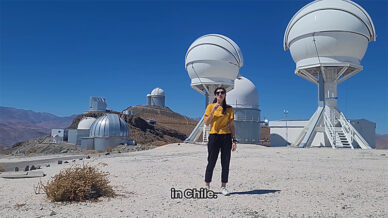
Desert nights – guided visit to Chilean observatories
In a new video she filmed in Chile, Ana Rita Silva, PhD researcher at IA and Porto University, guides us on a visit to two observatories – La Silla and Paranal, of the European Sourthern Observatory – and tells us how discoveries about planets light-years away from the Solar System are made.
Read more
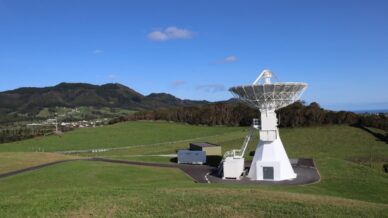
From Azores to the Universe
A PhD student at IA contributed to launching the astrophyskcal observations programme of the RAEGE-Az radiotelescope, on Santa Maria island, Azores.
Read more
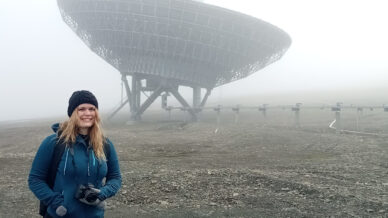
IA researcher is in the Arctic and will help “hunt” aurorae.
Filipa Barros is PhD student at IA and Porto University and uses computing engineering to the study of solar physics. The Sun paved her way to colder territories: the next four months she will be at 78° North, in Svalbard, Spitsbergen archipelago, Norway.
Read more
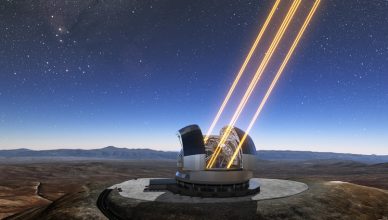
The technology and science of the largest telescope in the world
The Extremely Large Telescope (ELT), of ESO, will be one of the forthcoming technological marvels of Humankind. Alexandre Cabral talked to Expresso newspaper of the expectations regarding what will become the largest telescope ever.
Read more
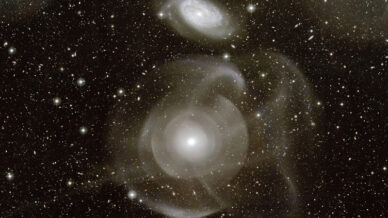
Star Treks, at last
Slow caravans of stars whirl around galaxies like decorative coils. They were hidden in the background noise of the astronomical images… until the new generation of telescopes. Article in partnership with National Geographic Portugal
Read more

Astronomy and Mental Health – Interview at Rádio Aurora
The researcher Tiago Campante shared his awe for the Universe with the team behind the radio project that gives voice to the madness and normality of the world we live in: Rádio Aurora – A Outra Voz (“the other voice”).
Read more
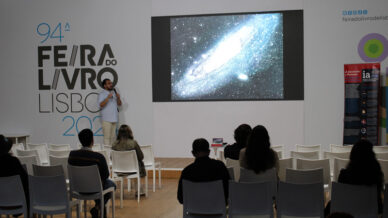
Galaxies – a collection of portraits
Davi Barbosa, PhD researcher at IA, took the public at the Lisbon Book Fair on a journey about how Humankind discovered more than a trillion galaxies besides our own Milky Way.
Read more
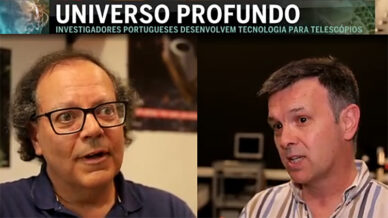
Technologies to uncover the deep Universe
Four IA researchers talked about the deep Universe and the technologies being developed to uncover its secrets.
Read more

